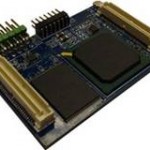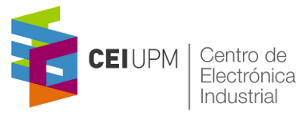Start date: 1 January 2012
Project website:
Researchers: Félix Moreno, Jorge Portilla, Eduardo de la Torre, Andrés Otero, Guixuan Liang, Wei He, Víctor Roselló
Partners
- Universidad de Cantabria (Spain), Universidad de Las Palmas de Gran Canarias (Spain), Universidad de Castilla La Mancha (Spain)
Description:
 DREAMS is a 3-year project whose main aim is to propose new methods and tools for networked embedded system design, considering aspects like complexity and heterogeneity of such electronic systems. In particular, DREAMS will address aspects like reconfigurability, validation, specification, performance analysis, HW/SW platforms, many-cores architectures, to cope with complex applications like context aware multimedia, with adaptability features. The project is led by CEI-UPM.
DREAMS is a 3-year project whose main aim is to propose new methods and tools for networked embedded system design, considering aspects like complexity and heterogeneity of such electronic systems. In particular, DREAMS will address aspects like reconfigurability, validation, specification, performance analysis, HW/SW platforms, many-cores architectures, to cope with complex applications like context aware multimedia, with adaptability features. The project is led by CEI-UPM.
Modern electronic systems are driven by complexity and heterogeneity: complexity as they are based on many functions working together that must be designed in a very short time, with limited resources and facing first-attempt success as a major goal; heterogeneity as they contain not only custom hardware, but microprocessor units running embedded software and communications that are attached to the system, resulting in networked embedded elements. This fact is complemented with the inherent complexity of the applications that are run by these electronic systems, particularly those indented to be used in multimedia environments equipped with some kind of intelligence, or at least, some context-awareness. DREAMS project will contribute to innovative methods and tools that will help in the design of such systems. In particular, DREAMS will deliver:
- A set of methods and tools aimed to cope with complexity and heterogeneity, covering key aspects of embedded systems design: reconfigurability, validation, specification, performance analysis, etc. Model-based and object-orientation will be deeply considered as key elements of these methods.
- A HW/SW platform that will be designed based on networked and secure elements that will have as main features its adaptability (at HW, SW and network levels), based on different design philosophies (as modular platforms with FPGAs or ManyCores, among others), and with enhanced security characteristics.
- A context-aware multimedia environment that will mainly work around SVC (Scalable Video Coding) algorithms, particularly well-suited for adaptable architectures, and with an inherent intelligence based on evolvable systems.
The partners of this project proposal have demonstrated previous experience in the technologies addressed in DREAMS, showing a complementary background required for the success of the project.
In summary, DREAMS will contribute to design methods and tools of networked embedded systems, developing a HW/SW platform and running smart multimedia algorithms customized for the target HW element.


